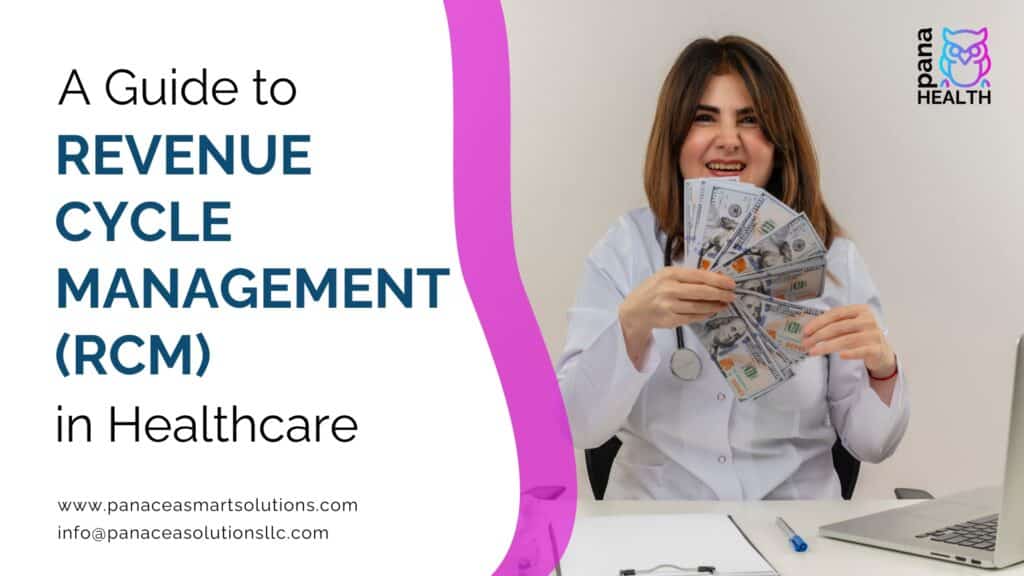Revenue cycle management (RCM) starts with the initial assessment of a patient’s eligibility for a claim, proceeding to medical coding and collecting co-pays, and efficiently managing the complete billing and payment collection cycle. It is widely used at Global Healthcare Billing Partners and refers to the entire process of claims management being accomplished in the shortest possible time.
A strong financial performance of the organization is the foundation of a sustainable healthcare system, making effective revenue cycle management (RCM) essential. The financial process is a key element to ensure healthcare organizations stay in operation to treat patients. Several facilities use healthcare revenue cycle management to collect profits and subsequently keep up with expenses.
Key Components of RCM in Healthcare
- Patient Registration
- Insurance eligibility and verification
- Claims submission adjudication
- Patient payment collection
- Denial management and appeals
Empower your revenue journey with Panacea Solutions
Significance of Revenue Cycle Management in Healthcare
The upgradation of the healthcare sector towards the value-based reimbursement model, a strategic way to revenue cycle management can provide numerous benefits to hospitals and medical groups, including:
Improved regulatory compliance
Revenue cycle management can assist organizations remain compliant with price transparency laws, billing regulations, coding guidelines, and other government mandates.
Enhanced patient experience
Revenue cycle management aids build trust and satisfaction among patients by streamlining the billing process and offering greater transparency and accuracy at every step of the patient journey.
Increased cash flow
Several researchers found that 89% of hospitals and health systems have experienced an increase in claims denial rates and that 86% of claim denials are potentially avoidable. A strong RCM process assists enhance claims accuracy and minimizes claim denials.
Upgraded operational efficiency
Streamlined RCM processes reduce administrative burdens, manual tasks, and paperwork.
Decreased expenses
Having an optimized RCM process, healthcare industries can save costs associated with denied claims, lower administrative inefficiencies, and recover more patient payments.
Challenges in Revenue Cycle Management in Healthcare
Some of the common challenges faced in RCM in healthcare include:
- Billing errors and rejections
- Denials and delayed payment
- Compliance issues
- Staff training and turnover
Ways to Optimize Revenue Cycle Management in Healthcare
Best practices for optimizing RCM in healthcare are:
- Using technology and automation: The adoption of revenue cycle analytics tools and utilizing financial data are crucial to make the revenue cycle more visible through charts or graphs. Dashboards and robust reporting are always advised for optimizing healthcare revenue cycle management.
- Enhancing communication and collaboration: For optimizing revenue cycle management, it is important to revisit daily processes to ensure everything is working smoothly.
- Continuous investment in staff training: It’s important to invest continually to educate the staff. Even in meetings or morning huddles, in terms of allowing for open communication of particular pinpoints helps in enhancing productivity and better output.
- Monitoring key performance indicators: Monitoring revenue cycle management key performance indicators is not an option, but rather a necessity, as it helps in Identifying if the revenue generated (and managed) is enough to keep your healthcare practice afloat.
- Regular audits and reviews: Medical coding audits help identify potential revenue cycle errors or omissions. Audits also aid inform educational opportunities and workflow improvements.
Final Thoughts
In essence, mastering Revenue Cycle Management (RCM) in healthcare is vital for financial stability and enhanced patient experiences. Efficient RCM, aligned with evolving industry models, ensures compliance, boosts cash flow, improves operational efficiency, and minimizes expenses. Despite challenges, optimizing RCM through technology, communication, staff training, performance monitoring, and regular audits is key. In navigating this landscape, a commitment to best practices allows healthcare organizations not only to overcome challenges but also to thrive, integrating financial stability with exceptional patient care.







